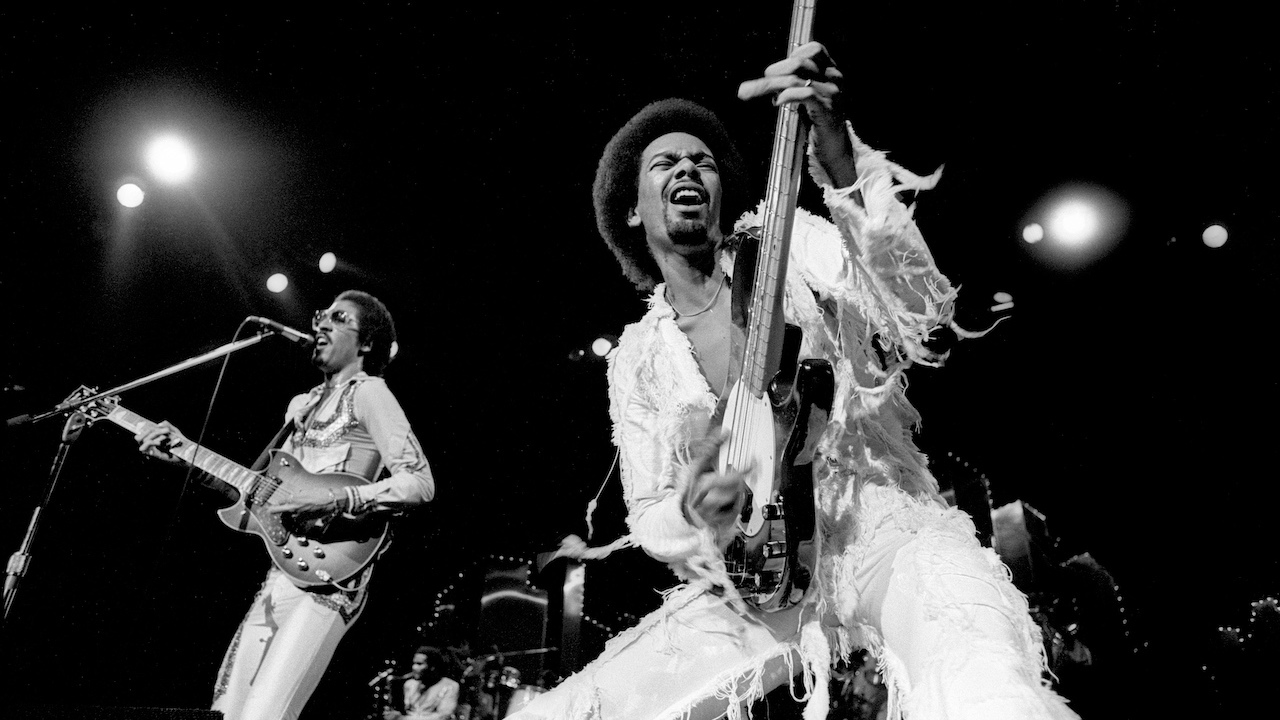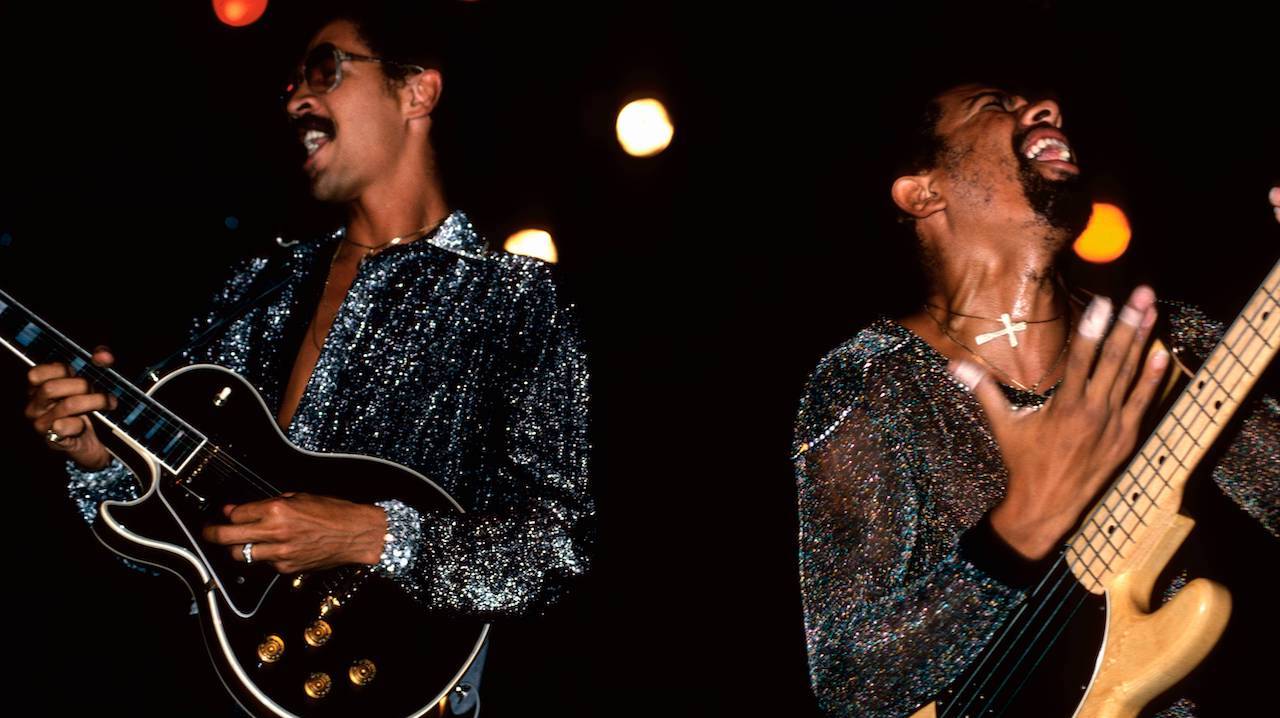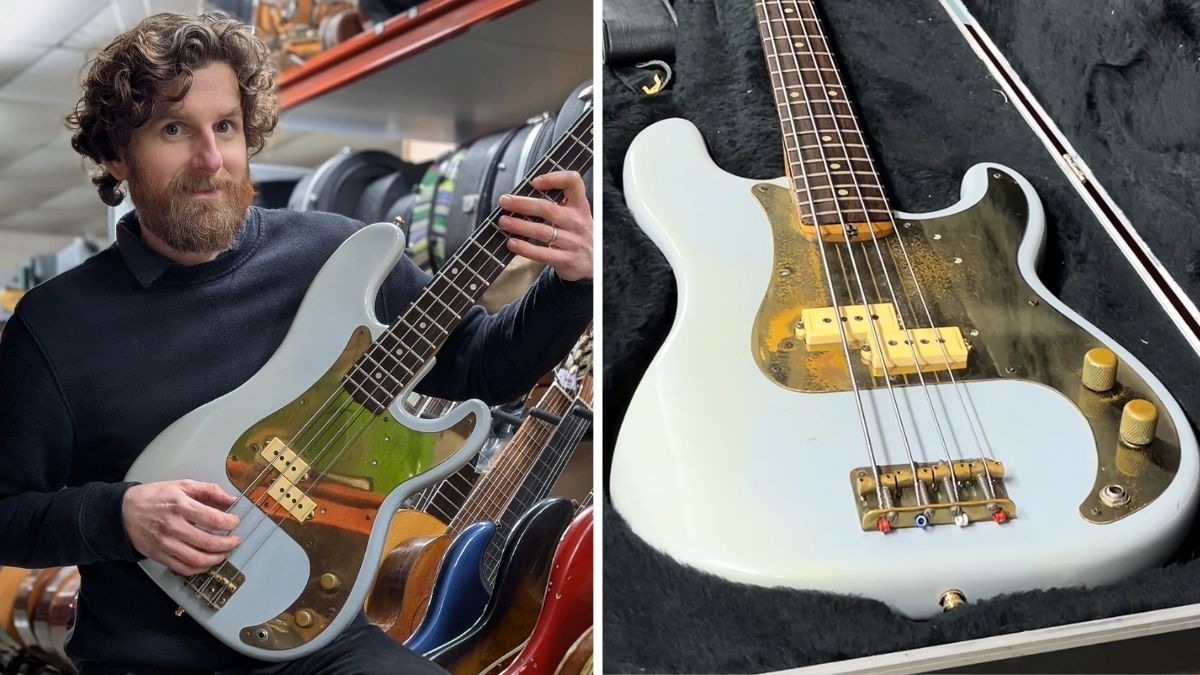How a pair of weight-lifting gloves helped Louis Johnson play slap bass
Louis Johnson: “I wear gloves to slow me down. When I take them off, it makes me play too fast”

All the latest guitar news, interviews, lessons, reviews, deals and more, direct to your inbox!
You are now subscribed
Your newsletter sign-up was successful
Ranked number 38 on our list of The 100 Greatest Bass Players of All Time, Louis Johnson, or ‘thunder thumbs,’ as he was also known, was one of the most enigmatic thumpers to ever pick up a bass guitar. His pioneering use of slap bass landed him on Michael Jackson’s Off the Wall and Thriller albums – including the disco romp of Get On The Floor and the hit single Billie Jean – as well as George Benson’s Give Me The Night and Michael McDonald’s I Keep Forgettin' (Every Time You're Near).
Johnson also scored a number of hits with his brother George as part of The Brothers Johnson, whose funk anthems included Stomp!, Get the Funk Out Ma Face, and Strawberry Letter #23. He played with such power that he regularly blew his bass amplifier’s speakers.
Using his custom MusicMan Stingray – designed by Leo Fender himself – Johnson was able to produce a distinctively funky, slap sound, as seen in his two instructional videos, Louis Johnson Master Session 1, and somewhat inevitably, Master Session 2.
Watching videos of Johnson play slap bass is simply incredible; his hands move so fast it’s a wonder how he managed to control the bass and produce such a magnificent sound. While often expected to add his fast-paced, signature slap to every bassline, Johnson knew better – “I actually wear weight-lifting gloves to slow me down,” said Johnson in a 1997 interview for Bassist Magazine. “If you wear gloves when you play slap bass, it holds you back, which in turn makes you a better bass player. I sometimes play too fast when I don’t wear the gloves."
Bear in mind that it takes considerable strength to build up the stamina necessary for this technique. As Louis also warned. ”After a while your skin has to give against bass strings because it’s only flesh and blood! Often I would play and end up all bloody-handed, which is why I decided to make a thumb protector. I made all kinds of different protectors: metal and plastic, until I found that a nickel protector sounded best against the strings I was using.”

While weight-lifting gloves enabled Johnson to take back some control over his technique, while also adding some serious dynamics to his basslines, other well-known bass players have also embraced the trend, and for a number of different reasons. A genius bass guitar hack? Or a gimmick to avoid at all costs?
“I wear silk gloves because they keep my strings bright,” Cameroonian bassist Ettiene Mbappe told BP. “Without gloves you get sweat on your strings and that makes them sound dull. I’ve been playing with gloves for more than twenty years now and you know what? They are becoming more famous than I am with the not-so-easy-to-pronounce name, MBappé. Just say, ‘the bass player with the gloves’, and people will know. I even love the look!”
ScottsBassLessons founder Scott Devine was another early adopter of silk gloves. ”It’s nothing to do with tone,” explains Scott in this video. “I’ve got a neurological movement disorder called focal dystonia and the gloves are just something I have to wear to help me play bass.”
The Brothers Johnson Bass Book from Bassline Publishing is now available on Amazon.
All the latest guitar news, interviews, lessons, reviews, deals and more, direct to your inbox!

Nick Wells was the Editor of Bass Guitar magazine from 2009 to 2011, before making strides into the world of Artist Relations with Sheldon Dingwall and Dingwall Guitars. He's also the producer of bass-centric documentaries, Walking the Changes and Beneath the Bassline, as well as Production Manager and Artist Liaison for ScottsBassLessons. In his free time, you'll find him jumping around his bedroom to Kool & The Gang while hammering the life out of his P-Bass.
